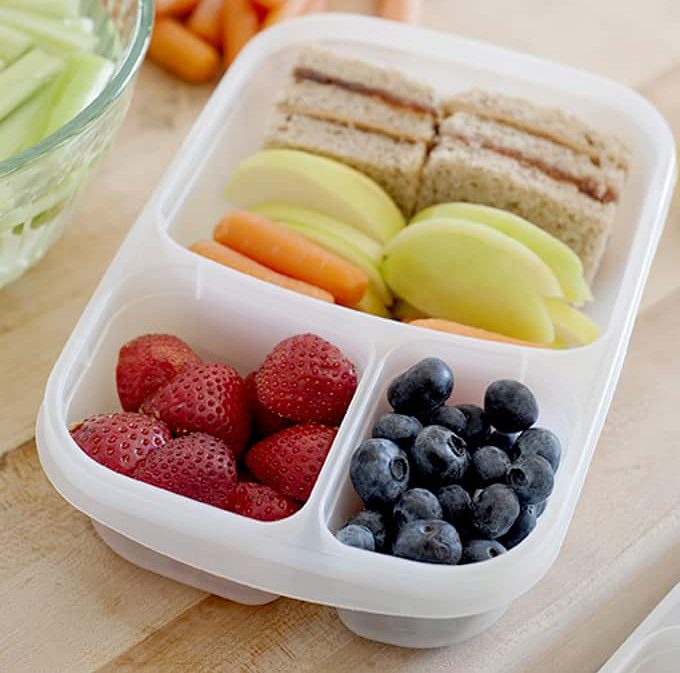Healthy Children, Happy Parents: Preparing Your Kids for School
As schools reopen, children and parents are gradually returning to their routines, but it's crucial to ensure our children are equipped to maintain their health and well-being. In this article, we'll explore how proper nutrition and practical tips can bolster your children's immune systems and contribute to their overall well-being.
1. Prioritize Basic Protective Measures
Before sending your children to school, instill in them the importance of basic protective measures:
-
Hand Hygiene: Remind your children to wash their hands thoroughly with soap and water or use an alcohol-based hand sanitizer. However, emphasize that they should wash their hands before eating instead of using sanitizer.
-
Respiratory Etiquette: Teach your children to cover their mouth and nose with their bent elbow when coughing or sneezing. Encourage them to dispose of used tissues immediately and avoid touching their eyes, nose, and mouth.
-
Social Distancing: Emphasize the significance of maintaining a safe distance of at least 1 meter from anyone who is coughing or sneezing.
2. Encourage Proper Hydration
Ensure your children stay hydrated throughout the day by:
-
Providing Water: Encourage your children to bring plain water to school. Water is the healthiest choice and helps maintain their overall health.
-
Incorporate Hydrating Foods: Apart from water, include foods with high water content in their diet, such as cucumber, tomatoes, spinach, and melon. Avoid sugary drinks like fruit juices, syrups, and fizzy beverages.

3. Opt for Healthy Packed Meals
Packing your children's meals has several advantages, including saving time and reducing their exposure to potentially contaminated surfaces at the school canteen. Focus on these guidelines for their meals:
-
Include Fruits: Incorporate fruits into their meals as they are easy to prepare and healthy. Toddlers need about 1 cup of fruit per day, while older children require 1.5 cups.
-
Add Vegetables: Mix vegetables with rice, pasta, or noodles in their bento boxes. The recommended daily intake varies by age and gender, but including a variety of colorful vegetables is essential for their health.
-
Protein: Ensure your children receive an adequate amount of protein, with fish, nuts (for those above 5 years old), and other protein sources.
-
Milk: Include three servings of milk or dairy products per day for children under 5. After 2 years, switch to semi-skimmed milk.
4. Gradually Introduce Healthy Foods
Introducing a variety of healthy foods to your children can be a rewarding journey. Here's how:
-
Step-by-Step Approach: Start by introducing one category of food per month. For example, focus on fruits in August and gradually expand their preferences.
-
Build on Favorites: Begin with foods your children already enjoy and then introduce variations within the same food category.
-
Consider Nutritional Supplements: If your children are picky eaters and you're concerned about their nutrition, consult a healthcare professional about appropriate vitamins and supplements. These can help compensate for any macronutrient and micronutrient gaps in their diet.

In conclusion, by following these guidelines and fostering healthy eating habits, you can help boost your children's immune systems and overall well-being, ensuring they have a healthy and happy school experience. Always consult with healthcare professionals for personalized advice on your children's dietary needs
References
- World Health Organization (WHO). Healthy at home. Tips for maintaining healthy diet. https://www.who.int/campaigns/connecting-the-world-to-combat-coronavirus/healthyathome/healthyathome—healthy-diet (Accessed in July 2020).
-
World Health Organization (WHO). Feeding babies and young children during the COVID 19 Outbreak. http://www.emro.who.int/nutrition/nutrition-infocus/feeding-babies-and-young-children-during-the-covid-19-outbreak.html (Accessed in July 2020).
-
WebMD. 6 Vitamins and Minerals your kids need. https://www.webmd.com/health-insurance/features/family-vitamins#3 (Accessed in July 2020).
-
Harvard School of Public Health. Nutrition Insurance Policy: A Daily Multivitamin. https://www.hsph.harvard.edu/nutritionsource/multivitamin/ (Accessed in July 2020)




